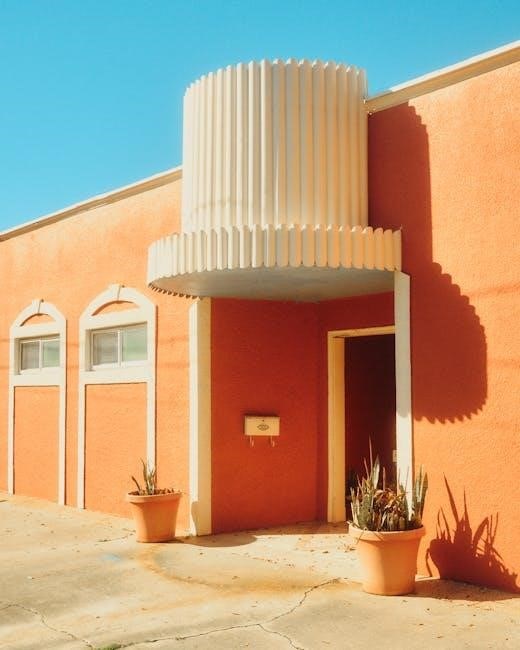Louisiana divorce forms PDF provide essential legal documents for initiating and finalizing a divorce. These forms outline the legal framework, required information, and steps for filing. They ensure compliance with state laws, streamlining the process for both spouses. Accurate completion of these forms is crucial for a smooth divorce proceeding.
Eligibility Criteria for Filing Divorce in Louisiana
To file for divorce in Louisiana, at least one spouse must reside in the state for six months. Grounds include living separate and apart for six months.

Residency Requirements
In Louisiana, at least one spouse must have resided in the state for six months before filing for divorce. The divorce must be filed in the parish where the spouse has lived for the past 90 days. If both spouses meet residency requirements, either can file in their respective parish. Residency is determined by domicile, where the spouse intends to permanently reside. This requirement ensures the court has jurisdiction over the case. Meeting residency criteria is essential for a valid divorce proceeding in Louisiana.
Grounds for Divorce Under Louisiana Law
Louisiana recognizes both no-fault and fault-based grounds for divorce. Under Civil Code Article 103(1), spouses can divorce due to irreconcilable differences after living separately for at least one year. Article 103(5) allows divorce if the couple has been married for less than five years and has no children, with a two-day waiting period after filing. Fault-based grounds include adultery or cruel treatment; The specific grounds chosen impact the legal process and documentation required. Properly stating the grounds in the divorce petition ensures the case aligns with Louisiana’s legal standards and facilitates a smoother resolution.

Steps to File for Divorce in Louisiana
Filing for divorce in Louisiana involves preparing forms, submitting the petition, serving papers, and attending court hearings. Ensure accuracy and compliance with state legal requirements for a smooth process.
Preparing the Necessary Forms
Preparing the necessary forms for a Louisiana divorce involves downloading and completing specific documents. Start with Form 1-102: Divorce Checklist, which outlines the required paperwork. Ensure you also obtain Form 2-103: Divorce Checklist for Attorneys if represented by counsel. Additionally, Form 3-103: General Checklist may be needed for self-representation. Carefully review and fill out each form, ensuring accuracy in personal details, marriage information, and grounds for divorce. If applicable, include details about child custody, support, and property division. Notarize forms where required and organize all documents before filing. Double-check for any parish-specific forms that may be necessary.
Filing the Petition for Divorce
Filing the petition for divorce in Louisiana involves submitting completed forms to the court. Ensure all documents, including the Petition for Divorce and required checklists, are finalized. File in the parish where you or your spouse has resided for at least 90 days. Submit the paperwork to the court clerk, who will review and stamp them. Pay the filing fee, which varies by parish, or request a fee waiver if eligible. After filing, the court will process your petition, initiating the divorce proceedings. Keep copies of all submitted documents for your records. The clerk will provide further instructions post-filing.
Serving the Divorce Papers
Serving the divorce papers in Louisiana requires proper legal notification. After filing, you must ensure your spouse receives the documents. If your spouse cooperates, they can sign a waiver of service before a notary. If they refuse, you must arrange for formal service through the court, typically via a sheriff or process server. Proof of service must be filed with the court. Louisiana law also allows a demand under Civil Code Article 103(1), requiring the spouse to respond within 60 days. If no response is filed within this period, the court may proceed with the divorce. Timely and correct service is crucial for advancing the case.
Required Divorce Forms in Louisiana
Form 1-102: Divorce Checklist for self-representation. Form 2-103: Divorce Checklist for attorneys. Form 3-103: General Checklist. These forms ensure compliance with state legal requirements and procedures.
Form 1-102: Divorce Checklist
Form 1-102 is a Divorce Checklist designed for individuals representing themselves in divorce proceedings. It provides a structured guide to ensure all necessary steps are completed. This form helps petitioners gather required documents, understand legal obligations, and comply with Louisiana’s specific regulations. It covers essential aspects such as residency verification, grounds for divorce, and property division. The checklist is particularly useful for uncontested divorces under Louisiana Civil Code Article 103. Proper completion of Form 1-102 ensures a smoother legal process and avoids delays. It is a crucial tool for navigating the complexities of divorce in Louisiana.
Form 2-103: Divorce Checklist for Attorneys
Form 2-103 is a specialized checklist tailored for attorneys handling divorce cases in Louisiana. It ensures legal professionals comply with all procedural requirements and statutes. This form streamlines the divorce process by outlining essential steps, from filing the petition to finalizing the decree. It addresses specific legal nuances, such as service of process, residency verification, and property division. Attorneys use this checklist to ensure accuracy and efficiency in preparing and submitting divorce documentation. It serves as a vital tool for managing cases effectively under Louisiana’s legal framework, ensuring adherence to state-specific regulations and court procedures.
Form 3-103: General Checklist

Form 3-103 is a comprehensive checklist designed to guide individuals through the Louisiana divorce process. It ensures all necessary steps are followed, from preparing documents to attending court hearings. The checklist covers key aspects such as residency requirements, grounds for divorce, and required forms. It also addresses specific scenarios, like cases with or without children. This tool helps litigants and attorneys organize and track the progress of their divorce case efficiently. By following the checklist, parties can avoid delays and ensure compliance with Louisiana’s legal standards, facilitating a smoother divorce process.

How to Fill Out Louisiana Divorce Forms
Filling out Louisiana divorce forms requires careful attention to detail. Ensure all personal and financial information is accurate. Follow the instructions provided for each form to avoid delays.
Providing Personal Information
When filling out Louisiana divorce forms, accurately provide personal information for both spouses, including full names, dates of birth, and Social Security numbers. List the marriage date and location. Include the parish where the divorce is filed. If applicable, provide details about children, such as their names, dates of birth, and addresses. Both parties must disclose their current residences. This information ensures the court can process the case efficiently and make informed decisions regarding custody, support, and property division. Accuracy is crucial to avoid delays or legal complications.
Listing Assets and Liabilities
Accurately listing all marital assets and liabilities is critical when completing Louisiana divorce forms. Include real estate, vehicles, bank accounts, retirement accounts, and personal property. Indicate the value of each asset and any outstanding debts. Specify whether property is jointly or separately owned. List all liabilities, such as loans, credit cards, and mortgages, noting both joint and individual responsibilities. Attach supporting documents, like account statements or tax returns, to verify the information. This ensures a fair division of property and debts, avoiding future disputes. Louisiana’s community property laws require clear disclosure of all marital assets and liabilities. Be precise to ensure an equitable outcome.
Child Custody and Support Information
When completing Louisiana divorce forms, detailed information about child custody and support is required. Specify custody arrangements, including physical and legal custody, and note any existing agreements. Provide details about each parent’s ability to care for the child. Include information about child support, such as income, expenses, and financial obligations. Attach documentation like income statements or existing support orders. Louisiana courts prioritize the child’s best interests, so accurate disclosure ensures fair decisions. Clearly outline custody preferences and support needs to facilitate a lawful and equitable resolution. This information is vital for determining custody rights and financial responsibilities. Be thorough and precise.
Finalizing the Divorce Process
Finalizing the divorce process in Louisiana involves attending court hearings, if required, and receiving the final divorce decree. The court reviews all submitted documents and renders a decision. Once approved, the decree is issued, legally ending the marriage. Ensure all paperwork is complete and accurate to avoid delays. The final decree outlines custody, support, and property arrangements. Both parties must adhere to its terms. This step concludes the legal process, providing closure and clarity for both spouses.
Attending Court Hearings
Attending court hearings is a critical step in finalizing a divorce in Louisiana. Depending on the case, a hearing may be required to resolve disputes or confirm agreements. If the divorce is uncontested and all forms are correctly filed, a hearing may not be necessary. However, if issues arise, such as disagreements over custody or property division, a court hearing will be scheduled. Both spouses may be required to appear, and the judge will review the case and make rulings. Proper documentation, including completed Louisiana divorce forms, must be presented to ensure a smooth process. Preparation is key to a successful outcome.
Receiving the Final Divorce Decree
The final divorce decree is issued by the court after all legal requirements are met. In Louisiana, a waiting period may apply before the decree is granted. Once approved, the decree is legally binding and officially ends the marriage. It outlines the agreed-upon terms, including property division, custody, and support. The decree is typically provided to both parties, either physically or digitally, and can be obtained from the court clerk’s office. This document is essential for legally confirming the divorce and moving forward with post-divorce arrangements.


